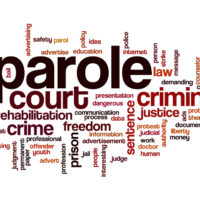Changes to Result from the Passage of Proposition 57

On November 8, 2016, California voters approved of the criminal justice reform ballot measure Proposition 57. This law will change the manner in which California prison inmates are released, and was written with the reduction of the state’s inmate population in mind. Learn more below about the changes that the law will bring to the parole process.
For years, the state of California has been the subject of federal scrutiny and reprimand regarding the overpopulation of its prisons. Proposition 57 was Gov. Jerry Brown’s proposal to help diminish the prison inmate population by, among other things, altering the timeline for when prisoners may apply for parole. Under the new law, prisoners will be able to apply for parole after completing their sentence for the primary offense for which they were sent to jail, rather than serving 75% of their entire sentence before applying for early release, which would include enhancements. For example, under the current law, if an inmate was sentenced to six years in prison for burglary, but received a ten-year enhancement for carrying and threatening victims with a gun during the burglary, that inmate would need to serve 12 years in prison before being eligible for parole. Under the law as modified by Proposition 57, that inmate would be eligible to apply for parole after six years, the entire sentence for the underlying offense. The measure was designed to apply only to offenses classified as non-violent under the law. While the effects of the changes are not yet understood, Proposition 57 could result in thousands of current California inmates being eligible for parole.
In addition to the change in when prisoners may apply for parole, Proposition 57 will make two more important changes to California’s criminal justice system. Instead of allowing prosecutors to decide whether to try a juvenile as an adult, judges will now have the power to make this choice. Additionally, the state’s correctional officers have been tasked with the creation of new good-behavior credits which prisoners serving sentences for many types of crimes would be able to earn, including some crimes considered “violent” under the law.
If you are facing criminal charges in Central California and want to ensure you have the best chances of receiving a fair trial and beating those charges, contact the knowledgeable, determined, and effective Ventura criminal defense attorney Paul Tyler for a consultation on your case, at 805-889-9000.



